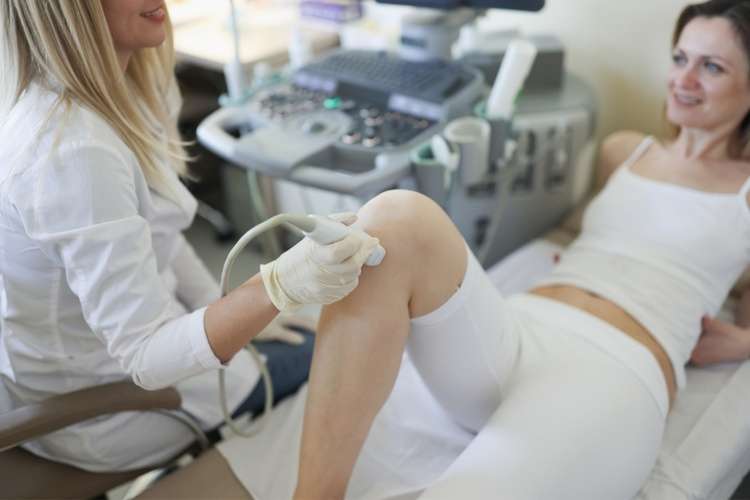Explore Sonography Training Programs and Career Options
Sonography training is a key step for those interested in becoming ultrasound technicians. These programs teach students how to use imaging equipment to support patient care. Whether you're just starting or making a career change, sonography provides hands-on skills and medical knowledge that open doors to diagnostic imaging roles.

How does sonography training prepare you for an ultrasound technician role?
Sonography training programs are designed to provide comprehensive preparation for a career as an ultrasound technician. These programs typically cover a wide range of topics, including anatomy, physiology, medical terminology, and patient care techniques. Students learn to operate various ultrasound machines and interpret the images they produce. The training also emphasizes critical thinking skills, as ultrasound technicians must be able to recognize abnormalities and communicate findings effectively to healthcare providers.
Moreover, sonography programs often include courses on medical ethics, healthcare laws, and patient privacy regulations. This holistic approach ensures that graduates are not only technically proficient but also prepared to handle the professional responsibilities of working in a healthcare setting.
What are the clinical and classroom components of ultrasound training?
Ultrasound training programs consist of both classroom instruction and hands-on clinical experience. The classroom component typically covers theoretical knowledge, including the principles of ultrasound physics, cross-sectional anatomy, and pathophysiology. Students attend lectures, participate in discussions, and complete assignments to build a strong foundation in the science behind sonography.
The clinical component is equally crucial, allowing students to apply their knowledge in real-world settings. Under supervision, trainees practice performing ultrasound scans on patients, learning to position both the patient and the equipment for optimal imaging. They also gain experience in maintaining and calibrating ultrasound machines, as well as documenting and storing images according to healthcare facility protocols.
What schools and certification options are available for sonography?
When exploring sonography education, prospective students have several options. Many community colleges, technical schools, and universities offer associate’s or bachelor’s degree programs in diagnostic medical sonography. These programs typically take two to four years to complete, depending on the degree level and whether the student is attending full-time or part-time.
Certification is an important aspect of a sonographer’s career. The American Registry for Diagnostic Medical Sonography (ARDMS) offers several credentials, including Registered Diagnostic Medical Sonographer (RDMS) and Registered Vascular Technologist (RVT). To be eligible for certification, candidates must complete an accredited educational program and pass a comprehensive exam.
Some schools to consider include:
-
Johns Hopkins University School of Medicine
-
Mayo Clinic School of Health Sciences
-
University of Wisconsin-Madison
How can one begin a fulfilling healthcare career in sonography?
Starting a career in sonography begins with choosing the right educational path. Prospective students should research accredited programs and consider factors such as program length, cost, and clinical placement opportunities. It’s also beneficial to shadow practicing sonographers or arrange informational interviews to gain insights into the profession.
Once enrolled in a program, students should focus on excelling in both theoretical and practical aspects of their training. Building strong relationships with instructors and clinical supervisors can lead to valuable mentorship opportunities and potential job leads upon graduation.
After completing the educational requirements and obtaining certification, new graduates can seek employment in various healthcare settings, including hospitals, clinics, and imaging centers. Continuing education and staying updated on technological advancements are essential for career growth in this dynamic field.
What does training to become a skilled and certified ultrasound technician entail?
Training to become a skilled and certified ultrasound technician is a comprehensive process that goes beyond mastering the technical aspects of operating ultrasound equipment. It involves developing a deep understanding of human anatomy, pathology, and patient care principles. Aspiring technicians must learn to perform a wide range of ultrasound examinations, including abdominal, obstetric, gynecologic, and vascular studies.
The training process typically includes:
-
Completing prerequisite courses in sciences and mathematics
-
Enrolling in an accredited sonography program
-
Participating in intensive classroom and laboratory instruction
-
Gaining hands-on experience through clinical rotations
-
Preparing for and passing certification exams
Throughout their education, students learn to work as part of a healthcare team, communicate effectively with patients and colleagues, and adhere to professional and ethical standards. Many programs also incorporate training in emerging technologies, such as 3D and 4D ultrasound imaging, to ensure graduates are prepared for the evolving landscape of diagnostic imaging.
Sonography training programs offer a gateway to a rewarding career in healthcare. By combining rigorous academic study with practical clinical experience, these programs prepare students to become skilled ultrasound technicians capable of providing vital diagnostic services. As the healthcare industry continues to grow and evolve, the demand for qualified sonographers remains strong, making this an attractive career option for those interested in medical technology and patient care. Whether you’re a recent high school graduate or considering a career change, exploring sonography training programs could be your first step towards a fulfilling future in the medical field.
This article is for informational purposes only and should not be considered medical advice. Please consult a qualified healthcare professional for personalized guidance and treatment.




